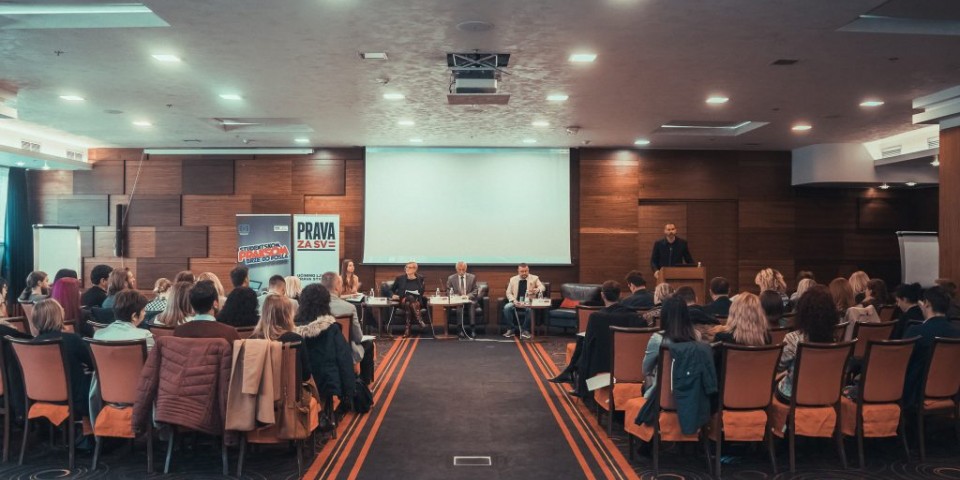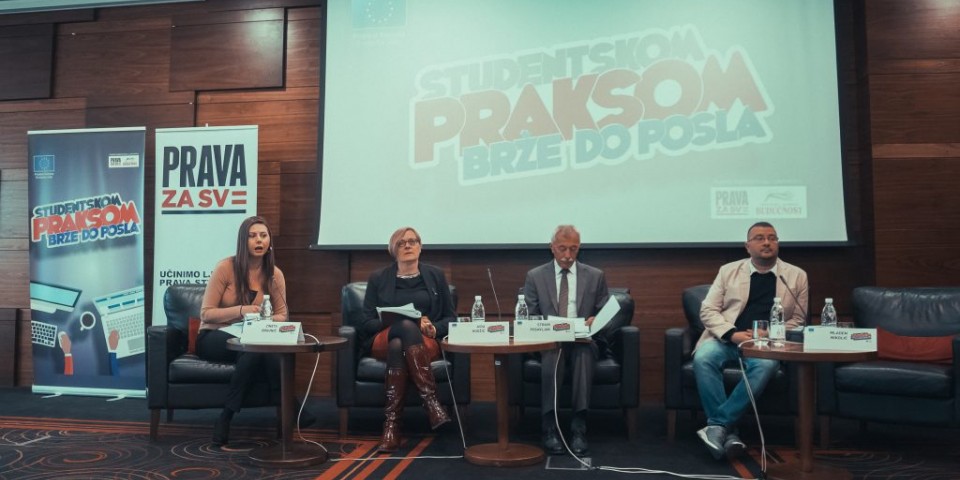
Opportunities for Youth Exist
Representatives of employers, academia, students and civil society organizations gathered last week at an event in Sarajevo entitled “Student Internship: a Fast Track to a Job” in order to...
Representatives of employers, academia, students and civil society organizations gathered last week at an event in Sarajevo entitled “Student Internship: a Fast Track to a Job” in order to examine the necessity of introducing practical instruction as an incentive to better education and faster employment of youth in Bosnia and Herzegovina.
The event was organized by associations “Prava za sve“ from Sarajevo and “Budućnost“ from Modriča, as part of the EU funded project of the same name. “Over the past 20 years, the European Union has allocated over 60 million Euro for the support of the education sector, which we will continue to do in the future. Special attention will be paid to higher education reform and transition of youth to their employment, as the connection between education and labour market is necessary for their professional training“, says Ljiljana Pandžić from the Delegation of the European Union to Bosnia and Herzegovina.
“What does the alignment between labour market and education mean? Do we need to align education with the labour market needs, or vice versa? How do our children get jobs in external markets? There is a concept of “Fach Schule” i.e., education for a particular field of expertise. In BiH we have a professional study course, for example, in electrical engineering and mathematical studies – which generate students who are immediately ready for the labor market after graduation. The universities cannot take over the role of the State, employers or other segments of society, but they can participate in developing the labour market. This is the field where all of us have to work together”, emphasizes Professor Aida Hodžić, PhD, Vice-Rector for Teaching and Students Affairs at the University of Sarajevo.
Saša Aćić, President of the Union of Employers’ Associations of Republika Srpska, emphasized that above all the youth must have more opportunities for employment: “On average, a young person receives their first paycheck at age 27, and becomes a parent of their first child at age 29. In other countries, this cycle is much shorter”, points out Aćić.
Haris Čapelj, Student Vice-Rector and President of the IEEE Association, underscored that solving this issue requires networking i.e., connecting all relevant segments: the universities, the employers and the students. “Not all statistics are discouraging. We are constantly drawing attention to the number of companies opened for particular professions and the actual size of labour market. We want to show that opportunities for youth exist, as companies have the capacities and expensive laboratories where the students can acquire practical skills, which they cannot obtain at universities due to lack of resources”, says Čapelj. On the other hand, Daniela Marić from SPARK Mostar suggested that the adoption of the Law on Student Employment is necessary to motivate employers to provide practical training for interested students.
According to Diana Šehić, Director of the Association “Prava za sve”, this event is the initial activity of the project which will, with the financial support of the European Union, pave the path to cooperation between the academia and business community on one side, and student and civil society organizations on the other, in the segment of higher education reform aimed at introducing regular practical training for students in the education system.












